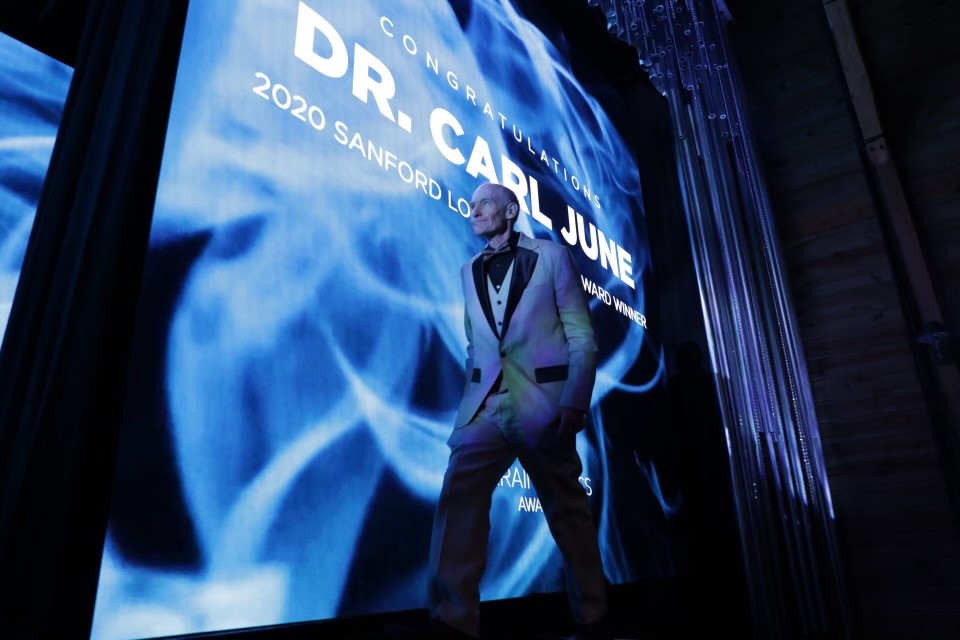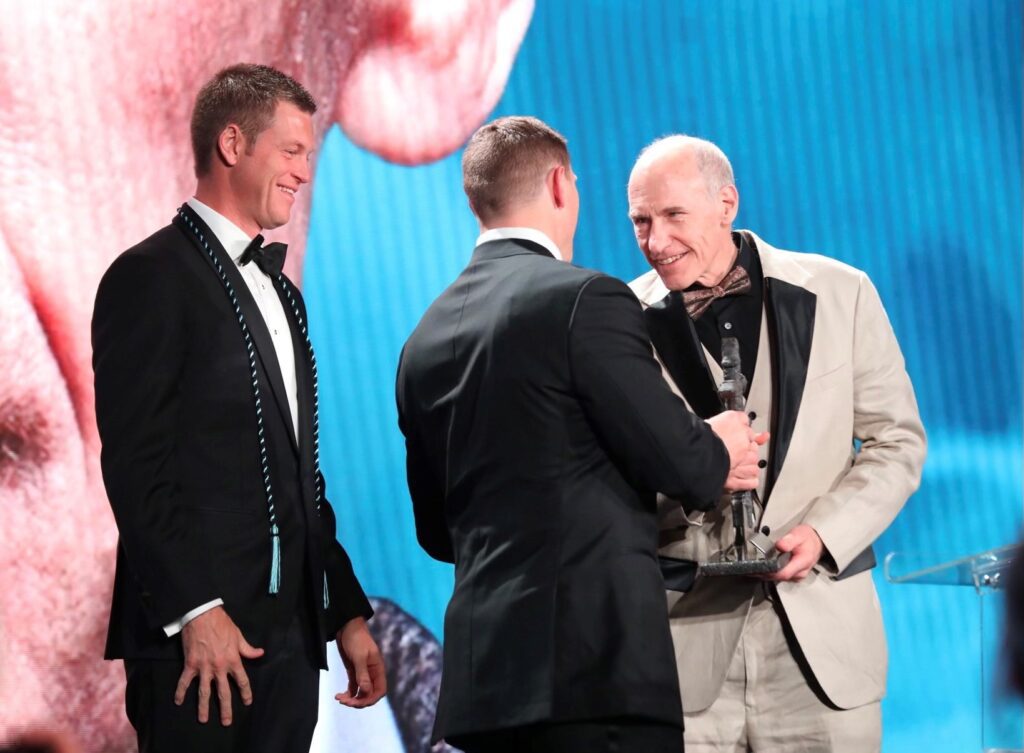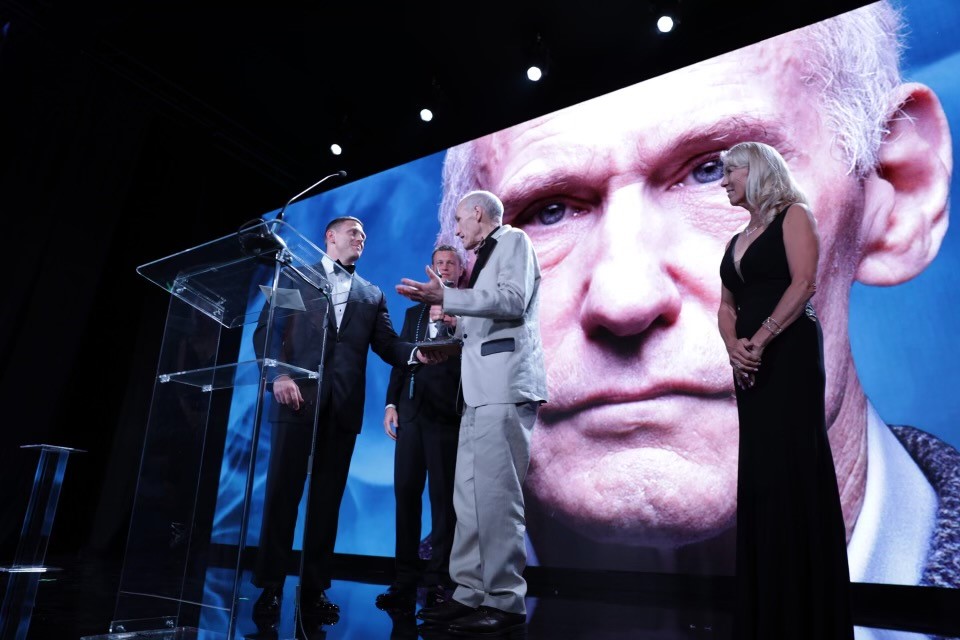Sanford names renowned oncologist $1M Lorraine Cross winner
April 13, 2021
Sanford Health has named a renowned immunologist and oncologist who was able to reprogram selected T cells to recognize and destroy leukemia cancer cells as the winner of its $1 million Sanford Lorraine Cross Award.
Dr. Carl June was named the winner of the of the biennial award, which honors life-changing breakthroughs and innovations in medical science.
The prize is the nation’s largest award in medicine given by a health system, using what Sanford calls “rigorous machine learning in its selection process.”
The finalists then meet with the Sanford International Board in Sioux Falls, which deliberates and votes to determine the winner.
“This was an amazing event and an extraordinary group of finalists, so it’s an honor and a thrill to be receiving this award,” said June, who is the director of the Center for Cellular Immunotherapies and Parker Institute for Cancer Immunotherapy at the University of Pennsylvania as well as the Richard W. Vague Professor in Immunotherapy in the department of pathology and laboratory medicine in Penn’s Perelman School of Medicine.
June, working with colleagues Dr. Bruce Levine, Dr. James Riley and Dr. Michael Milone, was able to reprogram selected T cells to recognize and destroy leukemia cancer cells. This therapy is now named KYMRIAH by Novartis and is FDA-approved to treat acute lymphoblastic leukemia, or ALL. In 2010, June and Levine treated their first patient – Bill Ludwig, a retired 65-year-old corrections officer. After just a few infusions, Ludwig fell severely ill and spent a week in the ICU. Then, all of the sudden, he woke up and found the masses had disappeared.
A second patient, Emily Whitehead, had relapsed twice at the age of 6 with an extremely aggressive form of leukemia. Like Ludwig, Whitehead got severely ill as the therapy tried to rid her of her cancer. However, this time June recalled an arthritis drug — from his daughter’s struggle with juvenile arthritis — that could manage her side effects.
“Sanford Health’s commitment to discovery has always been driven by our relentless focus on making a life-changing impact for our patients, people and the communities we serve,” said Bill Gassen, president and CEO of Sanford Health.
“Today, this continues as we honor Dr. June with the $1 million Sanford Lorraine Cross Award in recognition of his lifesaving discoveries and accomplishments. This is just one example of how we are working to transform the future by supporting change-makers in medicine and research. While one can only imagine what the next century holds for health care innovation, we are proud to be at the forefront of it.”
The other finalists were:
Dr. Mark Denison, director of pediatric infectious diseases, principle investor of Denison Lab, departments of pediatrics and pathology, Vanderbilt University. Denison has studied coronaviruses since the 1980s. In 2007, his lab discovered that coronaviruses have a protein that acts as a powerful proofreader during replication, meaning that the virus can self-correct errors in its RNA sequence. Through a partnership with Gilead Sciences, they discovered remdesivir, a drug that can evade the proofreading system and terminate the growth, thus killing the virus. Though remdesivir was shelved after failed attempts to treat hepatitis and Ebola, it has experienced a rebirth during today’s COVID-19 pandemic and is undergoing clinical trials for treatment.
Dr. Michael Welsh, investigator, Howard Hughes Medical Institute; director, Pappajohn Biomedical Institute, Carver College of Medicine, University of Iowa. Welsh is a pulmonary physician who wanted to know how human airways work, particularly how salt ions move across the airway wall. This led him to study cystic fibrosis, an inherited disease that causes lifelong vulnerability to destructive lung infections and an early death. Welsh has made multiple research breakthroughs related to cystic fibrosis, including a discovery that ignited drug development and led to advances to the point that 90 percent of patients now have a highly effective therapy.
The award is named after the Cross of Lorraine, a global symbol first chosen as emblematic for those who took action against disease in 1902 at the International Tuberculosis Congress in Berlin.
The Sanford Lorraine Cross Award is supported in perpetuity through an endowment established by donors to the Sanford Health Foundation.











